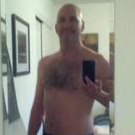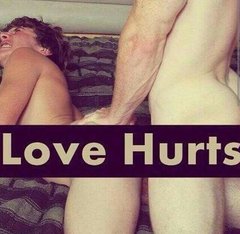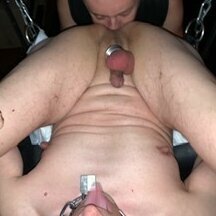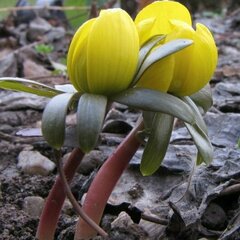-
Posts
201 -
Joined
-
Last visited
-
Days Won
1
Philip last won the day on October 16 2022
Philip had the most liked content!
About Philip
- Birthday 12/11/1990
Profile Information
-
Gender
Male
-
Location
Melbourne, Australia
-
Interests
Anon sex
-
HIV Status
Neg, On PrEP
-
Role
Versatile Bottom
Recent Profile Visitors
5,192 profile views
Philip's Achievements
-
Philip started following Tuesday 26th August, 2025 , Tuesday 2nd September, 2025 , Sunday 31th August, 2025 and 1 other
-
Hello beautiful, I’ve got a lot on my mind tonight, so I'll unpack it one by one. I'm going to be real with you, because you deserve honesty. I don't think I'm in a great place mentally right now. Life on the surface looks fine—work, gym, piano, singing, walking, journaling. Everything is steady. But it all feels stale. And lately, I've been turning toward erotic asphyxiation to feel some intensity. It got to the point where I was hanging a rope from the shower beam, kneeling, and feeling the dizziness and blackness closing in. A voice in my head told me to let go. I stopped just before I blacked out, and when I stood up, I cried. It felt like self-harm. I know if I'd stayed there just a few more seconds, that might've been it for me. I still find myself jerking off to that image of me hanging there, and I know how unhealthy it is—to associate arousal with death. But that's where I am, buddy. I'm too embarrassed to seek help, so l carry it inside. A big part of it, I think, is that I've lived enough life to know what it's about—and nothing excites me anymore. Everything feels routine. What I need is something new, something that challenges me, something that stirs passion again and I'm still searching for that. On another note, I had my second-last singing lesson today. Honestly, I've been counting down for the 10 weeks to be over. Singing has been one of the hardest things I've ever done. I've wanted to quit so many times. But I can't deny the massive improvement I've seen in my voice these last couple of weeks. My teacher is really good—always stressing consistency, not because she wants to keep me as a student, but because she believes singing is a lifelong practice. A part of me wants to step back and just sing casually, but an even stronger part wants to keep going, despite the difficulty. And I think that's what I'II do—commit to another term. I originally wanted to do it for the whole year, so maybe it's best to take it one term at a time. Finally, there's Suf. He hasn't messaged me in about a week. And, strangely, I don't feel sad about it. I just shrugged my shoulders and moved on. It is a little sad—we'd been exchanging voice memos for seven weeks straight, and then suddenly it stopped. But I don't mourn it. I don't grieve. And that confuses me. I've also been casually talking to Amin. It doesn't seem like it'll amount to much, but I'm okay with that. It's a very chill, low-flame type of connection, unlike the intense burn I've had with others. If this were the younger me, I would've stressed out and decided it wasn't worth it. But I think I've grown. I see now that connections come in different flavors, different spices. And this slower, gentler kind is something I'm learning to savour. Hope you are doing well on your end buddy. Chat soon xx
-
Philip changed their profile photo
-
Hello beautiful, I’ve been feeling quite restless lately. There’s this quiet sense that I’m losing direction in life. Everything is calm and steady—my job, my gym routine, piano, and singing. It’s all very routine-based, which is good… but also a bit dull. Nothing feels particularly exciting. I’ve noticed the restlessness showing up in strange ways. Like, this weekend I spent most of it just watching porn and jerking off—even though I wasn’t even hard. I also caught myself getting weirdly hyped about the new iPhone release. I don’t need another phone, but it feels like I’m waiting for something to inject excitement back into my life. And that doesn’t feel healthy. I’ve been thinking of taking a break from piano and singing. I know the more I practice, the better I’ll get—but I don’t know. Right now, I’m leaning hard toward dropping both. I’ve still got two weeks to decide, so we’ll see. While I’m on the break, I think I’ll focus more on the fitness course. That project’s been on and off, but I’m feeling the itch to just sit down and grind again, to build something meaningful. I also bought some new bowls this week—to elevate the eating experience. You know how we’re always chasing that soft kind of luxury? I think having really nice bowls and plates is a part of that. It’s made me want to get back into cooking. Maybe I’ll make a high-quality beef stew as part of my meal prep. Something slow, comforting. Also—big shift—I met someone today. A Persian guy named Amin from Hinge. He invited me over for lunch at his Docklands apartment. He cooked for me, and I stayed for a few hours. He’s really affectionate, and I was surprised by how much I wanted to touch him. Like, really couldn’t keep my hands off him. That’s a big thing for me, because the last few guys I dated didn’t evoke that at all—either I didn’t want to touch them, or they weren’t physically affectionate. Amin is 40, slightly insecure, but kind. He’s an electrical engineer at a renewable energy company and moved from Sydney to Melbourne about a year ago. It’s the first time I’ve dated someone Iranian. Usually it’s been Asians, and sometimes Caucasians—but this feels like stepping out of my comfort zone, in a good way. I made a rule for myself a while ago: let love surprise you. And maybe, just maybe, this is one of those surprises. We’ll see. We got a bit intimate—nothing anal—lots of sucking, and we napped together for a bit. I laid my head on his chest, and it felt warm and safe. I liked it. Hope you’re doing okay over there, buddy. Chat soon xx
-
Hello beautiful, It’s been a while since I’ve shared something heavy with you, but today I want to. This one’s about autoerotic asphyxiation—breath play. I started getting into it a couple of months ago, drawn in by videos of hot guys blacking out from sleeper holds. Johnny even tried it on me a couple of times, and I loved the sensation of waking up. It felt a bit like poppers, but dialed up to eleven. When I tried it alone with a belt, though, it left me with chest pains, and deep down it felt like a form of self-harm, so I stopped for a while. Recently I picked it back up, but with a rope tied to beams or door handles instead of using my hands. It got dangerous—there were moments I was probably seconds away from blacking out for good. Something in me always pulled back, but it shook me enough that I started watching dark web videos of people strangling themselves. It was surreal—watching someone alive one moment and gone the next—and for a while, I imagined myself in their place. It was fucked up, but I couldn’t stop. Then I stumbled across a Twitter account of a Japanese man who takes requests to sleeper hold people until they pass out. What struck me was that when his partners twitched and blacked out, he would hold them—give them aftercare until they woke up. There was a strange kind of tenderness in it, like he was saying: “I’m here, even as you come back from the edge.” And I realized how much I wanted that—the trust it takes to give someone your life for a moment, and the safety of being cared for when you come back. That reflection helped me see something else too: most of the darker videos I’d been watching weren’t even real. The convulsions weren’t there, the details didn’t line up. They were staged. Somehow, that took the edge off the obsession. I won’t lie, buddy: I still find it hot. But I’ve stepped away from hurting myself with it. What I want instead is a partner who can safely give me that experience with care, with boundaries, with trust. Maybe it’s not good for my brain cells in the long run, but there’s something powerful in that surrender and intimacy. If all of this sounds fucked up, it is—but it’s also real. And I needed to tell you. Hope you’re doing alright. Chat soon xx
-
Hello beautiful, I’ve been slack with sending you messages lately. Life has been busy, but I know that’s no excuse. So here I am, in the locker room at work—my little confessional booth—taking a moment to get some of these thoughts out. Today, I want to talk about Suf. We’re still sending daily voice memos, though he’s missed a day or two when he’s been busy. The rhythm between us feels like it’s shifting—it’s slower now, and I catch myself hesitating before sharing the more intimate parts of my life with him. There was a beautiful couple of weeks when our connection felt effortless, but now I can feel it waning. I think I just have to go with the flow and adjust to this new tempo. We caught up for a hike on Sunday. On the drive there, he was fairly quiet, and right at the start of the hike, he told me he doesn’t like to talk much when hiking—he prefers to listen to the birds and the sounds of nature. I was disappointed by that, because for me, hiking has always been a social thing. Sometimes I even listen to music on my earphones. So, there were moments on the hike when I felt lonely, even though he was walking just behind me. I kept glancing back to check on him, and it wasn’t like walking alone, where I can just be in my own rhythm. Originally, we’d planned for him to stay for dinner afterward, but at the last minute he said he felt too sticky and sweaty and wanted to head home. I didn’t feel let down exactly—more like it didn’t matter either way. We hugged goodbye, and that was that. The time we spent together also confirmed something I sensed from the beginning: he carries a kind of angry, bitter energy, especially when he talks about his ex. It’s understandable given what he’s been through, but it’s heavy, and I noticed myself drifting into a thought I felt guilty for: that I wished I were hiking with someone else, someone I could talk and laugh with. Another small thing: there were a few moments during the hike when I started singing, because you know how much we love to sing while walking. But I caught myself feeling self-conscious, worried it might disturb him—that maybe he wanted me to be quiet. And then I was stuck in this strange place of asking myself: do I minimise myself to fit his comfort zone, or do I keep expressing myself freely? I reminded myself that one day, nature will still be here, but I won’t—and maybe that means it’s worth hearing me sing, even if it breaks the silence for a while. So that’s where things stand, buddy. The connection is still warm, but different now. Slower. Changing. I’m just sitting with it and letting it be what it is. Stay awesome. Stay you. Chat soon. xx
-
Philip started following Tuesday 5th August, 2025 , Tuesday 12th August, 2025 , Sunday 10th August, 2025 and 2 others
-
Hello beautiful, My messages to you have been rather sporadic lately, and I’m trying to get back into the discipline of sending them daily. I had a singing lesson today, and it went pretty well. One of my piano coaches taught me to smile and laugh whenever I make mistakes—as a way of showing compassion and kindness to myself—and I carried that into my singing. Each time I slipped up today, I just smiled and laughed, and my teacher smiled along with me. It made everything so much lighter and less stressful. Singing isn’t meant to be stressful—but I still think it’s one of the hardest things I’ve ever done in my life. I understand the theory and I know what I need to do, but I can’t quite get my body and my voice to cooperate yet. Still, I’m having a ton of fun with it, even if it’s challenging. Piano, on the other hand, is going really well. I’m learning jazz and experimenting with different rhythms—it’s sounding good, and I’m starting to get the hang of it. I don’t know if I’ll continue singing and piano long-term. This feels like a three-month “season of music” for me, and after those three months, I’ll reassess whether I want to keep going or not. We’ll see where it takes me. My conversations with Brian are slowly and naturally fizzling out—which is what I want—but my conversations with Suf have become more fun. We did have one serious moment where he said he thought I might be falling for him. Not going to lie—I kind of am—but I know he’s emotionally unavailable, and I respect that. I told him we all have our own gardens. For him, after breaking up and now going through a healing process, his garden is still just soil. One day, it will bloom, and that’s when he’ll be ready to invite others in—but right now, it’s not the time, and I know that. So now, our conversations are light, fun, and casual—and I really enjoy that. There’s no pressure, no stakes. I always look forward to his messages. Have a good night, buddy. Love you always. Chat soon xx
-
Hello beautiful, I spent the whole day today hanging out with Jordan. He’s recently gotten into aquariums and wanted me to go with him to a few around our area to look for driftwood, soil, and rocks so he could work on some aquascaping. Jordan’s someone I’ve wanted to hang out with for a while now, but the opportunity never came up—until today. I’m really glad it did, because I’ve learned that he often feels lonely at home. No one there really cares about his interests; they think it’s a waste of time. But hobbies and passions are what make life richer, and I want to support that in my friends—including Jordan. By the end of our five-hour trip, he was so grateful that I’d spent the day with him, giving him the space to geek out over fish-related things. I happily walked beside him, listening the whole way, and I could feel the passion pouring out of him when he talked about fish. I was happy he could connect with the shop staff on such a deep level—much deeper than I could ever imagine doing myself. On another note, I went on my first date with Brian yesterday… which I think will also be our last. He’s someone I’d connected with deeply over text, but unfortunately, that connection didn’t carry over in person. Right off the bat, he’s definitely more on the feminine side. There’s nothing wrong with that at all, but for me, attraction tends to spark with someone more straight-acting and masculine—it’s just my personal preference. I also don’t think he enjoyed my “cooking” very much, even though it was store-bought and heated up. He barely ate, didn’t comment on the food, and didn’t thank me for dinner until the next morning. While we were talking, I noticed he fixated on certain details—like where I went to school and exactly what subjects I studied—more than I would have cared to. In the back of my mind, I kept wondering why these tiny details mattered so much to him. And then I realized why: it mirrored how I used to be with my ex. I’d get so detail-oriented that it would exhaust him, and now, here I was on the other side, feeling what he must have felt. Back then, I thought remembering those details was proof that someone cared. But now, years later, I’m much more relaxed about it. People forget things because we’re human—it’s okay. You can always remind your partner later if it matters. We played this word game called Poetry for Neanderthals, where you guess the word based on single-syllable clues. I sometimes use games like this as a low-stakes way to see if there’s compatibility. At one point, Brian told me to be quiet because my shouting out guesses was distracting him, and in that moment, I knew I’d made a mistake inviting him to stay the night. I realized I’d have to shrink myself a little, dial down my personality, just to make him comfortable—and I didn’t like that. When we got into bed, I didn’t feel physically attracted to him. I gave him a cuddle out of habit, but didn’t share much more about my life. I didn’t feel it was a safe space to do so. One more thing I noticed: half the time I was with Brian, my mind wandered to wanting to spend the night with Suf instead, if I’d had the chance. Suf’s in a healing process right now, figuring out who he is after a breakup. He’s been clear that he’s not looking for anything serious, and I accept that. I don’t want to overthink what it means that I was thinking about him while with someone else. I’m just calling it data—not something to run away from or bury, not something to name or conclude. Just… data. I’ll find clarity soon. Have a good night tonight. Chat soon xx
-
Hello beautiful, I’ve been speaking to this guy named Brian. We chatted a bit last night, and it went… okay. He asked quite a few questions and mentioned that he’s more of a night person—he usually messages in the evenings because he doesn’t text much while he’s at work. But for some reason, this morning he started chatting with me, which caught me by surprise. We ended up having a long back-and-forth conversation throughout the whole day, even while he was at work. He’s the type who sends a lot of short messages. There were a few times I didn’t check my phone for an hour, and when I came back, there’d be 20 or 30 messages waiting. I’d say he’s semi-responsive—he doesn’t answer every single question—but I do notice I’m being bombarded with a lot of questions about my life. To be fair, he also answers questions about his life, so there’s a pretty good balance there. I asked him over for a date at our place tomorrow night. I’ll cook him dinner, maybe get us both a little drunk, and see where that takes us. I even invited him to stay the night, and he agreed. I’ve noticed things shifting a bit with Suf. We’re still sending voice memos once a day, but the spaces between them feel longer somehow. We still share parts of our lives, but the rhythm, the tempo—it feels like it’s changing. Just something I’m clocking. Let’s see how things unfold tomorrow, eh?
-
Hello beautiful, I had another piano lesson today, and it was much better than last time. I think the difference was that this time, I came in knowing what I wanted out of the session. Before now, I always thought piano was just about learning songs from sheet music—sit down, master one piece, then move on to the next. That’s how last week’s lesson felt. But after diving into music theory, I’ve realized there’s so much more to it. Music can follow a structure, yes, but within that structure, there’s freedom for expression—for jazz, improv, and all kinds of creative play. That’s what makes it magical. I went in with a bunch of questions, and Max answered them all. I left the session feeling excited to get home and play again. For the first time in a while, everything felt right with the world. In other news, I decided to go back on Hinge just to see what’s out there. I ended up talking to about five different guys. And buddy, dating is tedious. Almost all of them asked me what I do for work and where I live—even though it’s right there on my profile. One gave me ridiculously short replies, which made the filtering process very easy. And weirdly enough, a few of them weren’t even in Melbourne; they were in Sydney, Brisbane, or Canberra but still looking for guys here, which just baffles me. Meanwhile, I’m still sending Suf voice memos every night—about ten minutes long—sharing my day and how I’m feeling, and he does the same. We’ve been doing this for weeks now. Subconsciously, it’s setting a very high bar for the next guy I date. I’m not sure if that’s unfair, but honestly, that’s the kind of connection I’m looking for. Deep, consistent, genuine. The best part is, I’m not overwhelmed with disappointment this time around. I’m actually enjoying single life—spending time on my own, sending voice memos to Suf, and seeing friends. I don’t feel alone, not like I did a couple of weeks ago when I was still clinging tightly to Phil, thinking no one could compare and that there was no hope. I don’t feel that way anymore. That feels like growth. It’s a long road ahead, buddy, but there’s always light at the end of the tunnel. Have a good night. Chat soon xx
-
Hello beautiful, I had another singing lesson with Elissa today, and I thought she would be really impressed with my newfound interest in music theory. Instead, I think she felt a little overwhelmed on my behalf (even though I don’t feel overwhelmed at all). If I could read her mind, I bet she was thinking, “Woah, let’s slow it down a notch or two.” I know people often do that out of care and kindness, especially if they don’t know us very well. But when we dive into something, we really crank the dial up to eleven. For those who truly know us, the best response in this scenario would be something like: “Yes! I love it! Just remember to hydrate, get your full sleep, and you’re golden.” Something like that. In other news, I did a few more classes on Pianote today, and I absolutely love it. At this point, I feel like I have three piano teachers: two real human ones, and one virtual. It’s made me reflect on what makes a truly great teacher—because we want to be good teachers ourselves one day. I think the standout qualities go beyond just being knowledgeable. A great teacher also leaves you with a life philosophy you can carry with you and apply outside the classroom. For example, in the massage course you’ll be doing soon, you’ll meet a trainer named Lynette. She’s all about connecting the body with the energy around us, and she taught me how to recenter my spirit and find calmness with the world. Elissa, my vocal coach, has been teaching me patience and compassion with myself. And Lisa, from Pianote, showed me how to laugh at the mistakes along the way and to keep the joy alive, because after all—we’re only human. That’s the kind of teacher I want to be. I want to give people something they can take away that makes their lives better. I think that “something” is grace. Anyone can teach a skill, but not everyone can do it with grace—that gentleness and humanity that feels so rare these days. And if I can bring that into someone’s life, even for a moment, I’ll know I’ve made an impact. Keep your chin up, buddy. Chat soon xx
-
Hello beautiful, I was doing some pointless scrolling on YouTube the other day when it suggested a channel called Pianote. It’s run by this lovely lady named Lisa who teaches piano from beginner to advanced. I watched a couple of her videos and I really like the way she explains things. Combined with the music theory I’ve been learning, her lessons reinforced a lot of what I’ve read about but hadn’t necessarily put into practice yet. She has such a calm, nurturing energy—and she’s funny too. I found out that Pianote is actually a whole online course where Lisa and other teachers come together to guide students, and it only costs $50 AUD a month, which is much cheaper than the $40 AUD a week I currently spend on lessons. I do think there’s real value in having a teacher, especially in the beginning stages, but I also see the benefits of combining both a teacher and an online program. This course just feels so aligned with my learning style—the variety, the knowledge, and especially the fun, inviting energy Lisa brings. Playing along with her doesn’t feel like an isolated activity but something I can actually look forward to after work. Honestly, it feels worth every penny. That said, I’ve already paid for a term’s worth of piano lessons—seven more classes—so I’ll make the most of them. The only tricky part is that my vocal coach is also a piano teacher, which means I can always ask her any questions I have, especially around theory. So maybe having two piano teachers is a little redundant. Still, I see all this spending as an investment in clarity—every step brings me closer to understanding what I want and need. I’ll keep you updated on my progress, buddy. Chat soon xx
-
Hello beautiful, This weekend has been pretty good. It’s probably the first weekend in a long while where I basically did nothing—no running around socializing, no endless errands. Just a slow, quiet couple of days. I did get my monthly haircut though, and went straight home afterwards for a nap. As usual, I squeezed in some piano and singing practice. Work gave us a beanie recently, and I usually wear it on my walks since it’s always under 10°C. But today I skipped my shower, so I couldn’t wear it, and my nose started running from the cold. I think I’m officially in love with beanies—they’re such a simple but perfect way to stay warm. In other news, I’ve started sending out voice memos instead of just regular texts, and a lot of my friends seem to enjoy it. Some of them are even doing the same. It’s nice hearing their voices—it adds a warmth you don’t quite get with texts. Still, I’ll always love long text messages too, even if most people don’t seem to enjoy writing essays the way we do hehe. Right now, I still have seven more lessons left with my music teacher. After that, I think I’ll drop piano lessons and continue learning on my own, maybe with the help of short courses on YouTube. My singing teacher also teaches piano, and she said we can split our sessions if I ever want to cover both singing and piano, which feels like a pretty good option. Take life nice and easy, buddy. Chat soon xx
-
Hello beautiful, I’m finding it really difficult to take some time off from the gym. Recently, I woke up with a massive headache, and I think it’s because I’ve just been go, go, go these last couple of weeks—piling on so many new things like singing, piano, and now music theory. It feels like everything is starting to catch up with me. My right shoulder has also been acting up, tense and sore. So I decided to give myself the weekend off from the gym, sleep in, relax, and just do a lot of pointless stuff. Sometimes I look down at my growing belly and I get the urge to run straight to the gym and lift a few weights, but I know pushing through might just make things worse, so I try to stop myself. Lately I’ve been thinking about how time is really just an illusion—something we invented to keep track of things. And if I give my body 72 hours of full rest, it won’t know the difference. It won’t know it’s been 72 hours. It’ll just know that some time has passed. Johnny came over today and we played Donkey Kong, then ended up watching some YouTube videos of people singing. Something unexpected happened: we started harmonising together—and it was wonderful. I never thought I’d have the courage or the skill to do it, but I did. I hit the notes, I knew what I was doing, and it felt amazing. All the hard work from these last few weeks of singing lessons finally felt like it was paying off. I know I keep saying this, but now I’m not sure if I want to drop singing after all. I feel like I’m building momentum, and I’m excited to see where it goes. If this is my progress in just a couple of weeks, where will I be in a year’s time? In other random news, Johnny also let me try his new poppers called Jungle Juice. I’ve tried a lot over the years, but this one was probably the best. I felt it almost instantly, and the high lasted for a good while. I might look into getting some myself. Things are getting exciting around here. Take care of yourself, buddy. Chat soon xx
-
Hello beautiful, I’m diving into the deep sea now when it comes to music—music theory. The best way I can describe it is that music theory is like a grammar book for music: it teaches you how it should be played to sound beautiful, and the rules that govern what works and what doesn’t. But like all good grammar books, once you understand the basics, you’re free to break as many rules as you like to create magic. I’m starting to understand the rules that make music what it is, and I’m so excited about it. I’ve realised that music is its own language, like Italian or French, and it tells a story too, carrying the listener on a journey the same way a good book transports you somewhere else for a while. I’ve also learned that once you know the rules, you can even predict the next note in a song. How amazing is that? It means music isn’t really random at all—it follows patterns. You just have to learn how to fill in the gaps. My initial plan was to drop singing for now while I focus on piano and theory together, and then return to singing later once I’ve built a stronger foundation. For now, I’m planning to stay with my current piano teacher for this term, and then maybe return to my previous one later on. He specialises in chords and improvisation, and even though his methods were messy and chaotic, he actually taught me a lot. But then I remembered that my vocal coach is also a piano teacher, which opens another option: I could stick with her, learn piano at my own snail pace, study theory on my own, and come to her whenever I have questions. Lots of options, so I’ll sit with it for a while. My next lesson with her is this Tuesday, so I have a couple of days to think it through. Life’s a roller coaster, and right now, it’s climbing. Chat soon xx
-
Hello beautiful, Let me tell you a story. I had my second piano lesson today with Max, and I think I made a mistake by telling him I’d been practicing at home and showing him my progress. Right after that, he said, “Okay, I want you to play this piece,” and of course, I tensed up and couldn’t play it properly. We kept at it for a while, and once he thought I got the gist, we moved on to the next song. But in the end, the whole lesson felt like me just practicing something I could’ve done on my own. Not that it was a total waste—he did say something that stuck with me: that I should aim to reach a stage where I don’t need to count in my head anymore and can just feel the beat in my bones. I really liked that. Still, I’ve figured out what I want to do now. Next time I see Max, I’m going to challenge him. I’ll tell him I don’t just want to play pieces straight from the book—I can handle that practice at home or ask for help if I get stuck. What I want is to be surprised, to experience what learning the piano can really feel like, and to leave each lesson wowed and itching to play more when I get home. A part of me wonders if he can deliver on that. It makes me think back to Nhan, my old piano teacher. I’m starting to appreciate his chaotic teaching style more than I realised, and honestly, I miss it. If I gave him this kind of challenge, I know he would’ve lit up, always eager to throw something unexpected my way, even if it was meant for years down the road. Let’s see where this takes us, yeah? Chat soon xx
-
Hello beautiful, I want to talk about Jan today. We’ve decided to have our first meet-up this Friday night. I’m hesitant to call it a date, even though technically it is. When he told me he was free and asked if I wanted to do something, I noticed I didn’t immediately get excited or jump at the opportunity. Instead, I found myself wondering if I even wanted to go at all. The reason is that our conversations through text have felt pretty lukewarm. They don’t really go anywhere or dive deeper. Yes, he checks in every day, but it’s mostly just, “How’s your day going?” or “What’s the plan for the rest of the night?” We exchange polite replies, but when I stop and think about it, I wonder—what have we actually talked about? Some might argue that maybe he’s better in person than over text, and that’s fair. But then I wonder, what happens in the in-between? Do we just wait to see each other once a week without sharing much depth through messages or calls? I asked him today what he’s looking for on the app, and he said he’s ultimately after a long-term relationship, but that he’s “going with the flow.” And I think that’s the key phrase: going with the flow. He’s taking things easy, not stressing, and it makes me feel a little guilty for wanting more from him. With Suf, and even with Phil, I felt like I could fully unleash myself, and they could (at least somewhat) hold the space for it. With Jan, I feel like I can only hand over a part of myself, not the whole. So for now, I’ll let these feelings simmer a little longer before deciding what to do with them. Dating is tough, buddy. But I can see the light at the end of the tunnel. One step at a time, yeah? Chat soon xx
Other #BBBH Sites…
This site is protected by reCAPTCHA and the Google Privacy Policy and Terms of Service apply.














